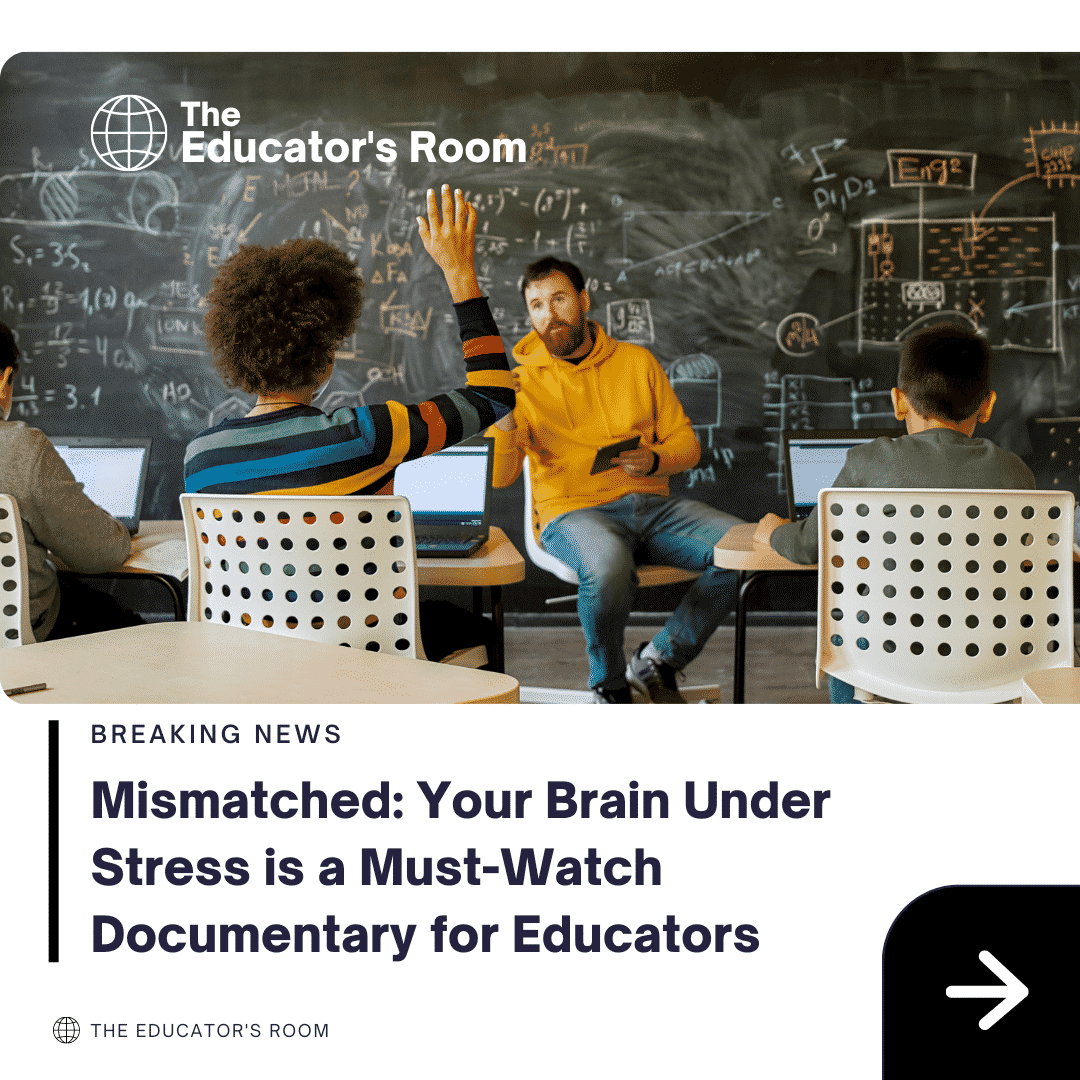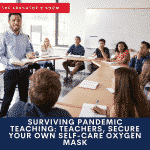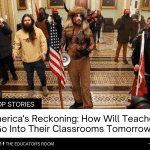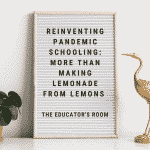The Documentary
Daniel Kirsch, Ph.D., is the President of the American Institute of Stress and is a resident of my hometown of Mineral Wells, Texas. I have met him on a handful of occasions and recently had the opportunity to watch a documentary he had a hand in creating, along with documentary filmmaker Justin Smith, called Mismatched: Your Brain Under Stress. As a PK-12 educator for 24 years and a current school district superintendent, I am thrilled that I got to watch this film.
We all know that stress exists. We have all experienced it, and we know how to recognize it when it rears its ugly head. But being familiar with a subject and having expertise in a subject are two very different things. Mismatched is a six-part documentary that does a thorough job of explaining what stress is and what exactly it does to us, and it does so indigestible easy-to-watch episodes.
[bctt tweet=”Since stress is such a prevalent part of today’s world—especially the world shared by young learners and their teachers—understanding stress is not just advisable. It is essential. ” username=””]
Teachers and school leaders often find themselves tangled up in the day-to-day details of their respective jobs and—without meaning to—easily overlook details that are highly determinative to their success or failure in the crucial task of getting students to learn. Stress is something we don’t always think about, just as a fish doesn’t likely think about water very often. It’s just there. But when it comes to teaching, stress is a reality that matters a great deal. Stress hurts teaching by hurting teachers.
Stressed-out Teachers
In March 2020, the Collaborative for Social-Emotional and Academic Learning launched a survey “to unpack the emotional lives of teachers during the COVID-19 crisis,” which found teachers’ five most-mentioned emotional states to be the following: anxious, fearful, worried, overwhelmed, and sad. The five most-mentioned emotional states in a similar survey in 2017—long before anyone had ever heard of COVID-19—were only a little less troubling: frustrated, overwhelmed, stressed, tired, and happy (Brackett and Cipriano, 2020: link). Stress is real for teachers, and it affects not only their well-being but their performance. Stress diminishes teaching effectiveness in multiple ways. For one thing, it contributes to burnout and to the number of teachers leaving the profession. Teacher turnover is an expensive draw on limited educational resources, and, because “teaching experience is positively associated with student achievement gains,” teacher turnover negatively impacts students’ learning, and, as a consequence, their future prospects (Kini and Podolsky, 2016, link).
Stressed-out Students
Many popular articles and scientific studies about education fixate almost exclusively on the role of teachers in improving outcomes for students, and they often gloss over the equally (if not more) important role played by the student. Mastery takes at least two, and maybe three if you want to include the family support system that, in my experience, often serves as a guarantor or backstop for learning. We don’t talk about teaching-or-learning; we talk about teaching-and-learning. For our nation to get where we want it to go, we must have teachers doing their jobs effectively, and we must have students doing their jobs effectively. It takes both, and stress inhibits both.
Today’s students might be the most stressed-out people on the planet, especially considering the COVID-19 epidemic. But students’ stress goes far beyond the isolation and fear related to the novel coronavirus. Academic expectations have rocketed upward since education think-tankers started marketing the term “rigor” as a euphemism for “really hard stuff.” In my home state of Texas, multiple studies of the state’s required STAAR exams have found that “for the most part, reading tests given to students in grades 3-8 are at a level of difficulty at least one year above grade level” (Swartz, 2019, link). Texas third-graders must read at a fourth- or fifth-grade level to “pass” their annual standardized test and be considered successful. It’s no wonder kids are struggling to maintain their mental health. And they aren’t just stressed by an ultra-challenging academic environment. Students today deal with abuse and neglect, drugs and alcohol—the temptation to use, as well as the actual abuse of drugs and alcohol by themselves or their parents, sleep deprivation, excessive screen time, cyber-bullying, regular bullying, and a whole host of other stressors. Stress hurts learning by hurting learners.
[bctt tweet=”Stress harms academic outcomes by hobbling teachers and learners, and the truth is we barely discuss it in schools.” username=””]
Mental Health Awareness
I am writing this while wearing green for mental health awareness. The level of attention paid by the media, legislators, school board members, and educators to mental health in schools has—in my view—increased lately. This is possibly in response to acts of school violence and the trauma of COVID-19 lockdowns. In recent years, legislation has been introduced at both the federal level and in many states to bolster trauma-informed practices and the mental health supports available to children and youth in educational settings. Texas Education Code section 38.036 requires every school district to “adopt and implement a policy requiring the integration of trauma-informed practices in each school environment.” These kinds of advancements hold promise to enable educators to implement practices that will help students develop coping mechanisms for the stressors in their lives, including the stressors no one else sees or knows about. Stress management is as important to mental health as diet management is to physical health, and schools are waking up to the fact that healthy students are better learners.
To Confront Stress, We Must First Understand It
Stress is a topic we often forget about, but it is ubiquitous in our lives, and—depending upon how (and whether) it is managed—stress can play a huge role in the success or failure of both teachers and learners. The education of young people in our nation is such an important task that we cannot afford to allow something manageable like stress to impede it. We must hit on all cylinders if our tomorrows are to be as bright as we hope.
Mismatched provides a unique opportunity for teachers and teacher-leaders to truly understand what stress is doing to them, to their students, and to the instruction that depends on both parties. This film—divided into six short episodes of around 25 minutes each—highlights the effects of stress on our health, explains the interplay of mind and body and how our bodies respond to stress, describes the resilience that first responders must develop to cope with high-stress levels, and underscores the promise of the unfocused mind for counteracting the negative impacts of stress.
In the end, Mismatched helped me to develop a keener understanding of the nature of stress, its effects on my students and employees, and ways to counter its adverse effects. I think every educator in America should see it. The documentary is available with institutional pricing for schools at https://www.stress.org/product/mismatched, and it comes with lesson plans and assessments for each episode included for institutional buyers.






